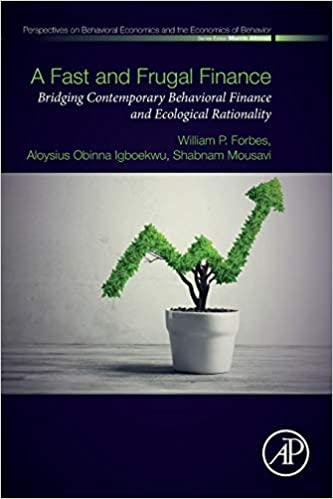Question
Please analyze, from the perspective of finance, the choice of buying a house vs renting an apartment. To make a quantitative analysis, suppose you have
Please analyze, from the perspective of finance, the choice of buying a house vs renting an apartment. To make a quantitative analysis, suppose you have collected the following information:
If you rent a 1,000 sq ft two-bedroom apartment in RTP area, your monthly rent will be $900. The apartment is in move-in condition. You wont have any upfront expenses when you move in.
If you want to buy a house, a 2,000 sq ft three-bedroom townhouse in RTP area is sold at $200,000. To get your application for mortgage approved by a bank, you need to pay 20% down payment. In addition, there is $2,000 closing cost. Your mortgage bank gives you two offers for mortgage. Offer one is a 30-years fixed-rate mortgage at 3.88% APR. Offer two is a five-year floating-rate mortgage, ARM 5/1, at 2.88% interest rate.
Take offer 2 if buying
A townhouse owner needs to pay $80 HOA fee each month. In addition, the property tax and house insurance together are about 1.5% of house value.
In addition, you make the following assumptions to simplify the situation:
Suppose you will live in an apartment or a townhouse for five years only. After year five, you will either buy a larger single family house or move to another place. That means you need to resell your house at year five.
Currently, the US house market is close to bottom. So you expect in next five years, the market value of your house will increase the same as inflation rate. Based on the knowledge youve learned from economics courses, you think inflation rate might be around 3% in next five years. That implies your house value will increase at 3% each year.
The utility expense of a townhouse will be higher than that of an apartment. However, considering that the interest part of your monthly mortgage payment is tax-deductible, you simply assume the extra utility expense of a townhouse and the tax-saving due to mortgage interest expense are canceled out. That means you dont need to consider utility when you do your quantitative analysis.
You will pay $6,000 transaction costs when you resell the house.
At time when you resell your house, your mortgage is not paid off yet. So you have to use the sales proceeds to pay off your mortgage first. You can find how much mortgage balance remains unpaid by checking the mortgage amortization table at www.bankrate.com. Go to this website, click calculator/mortgage calculator, then input your mortgage information and calculate monthly payment, lastly, click amortization table, you will find your mortgage balance at end of year five.
Your opportunity cost (required rate of return) is 8%
Based on the above information, do you want to buy a house? Why?
(Hint: this is a replacement capital budgeting decision. You need to calculate incremental cash flows between housing and renting and use incremental cash flows to calculate NPV).
Step by Step Solution
There are 3 Steps involved in it
Step: 1

Get Instant Access to Expert-Tailored Solutions
See step-by-step solutions with expert insights and AI powered tools for academic success
Step: 2

Step: 3

Ace Your Homework with AI
Get the answers you need in no time with our AI-driven, step-by-step assistance
Get Started


